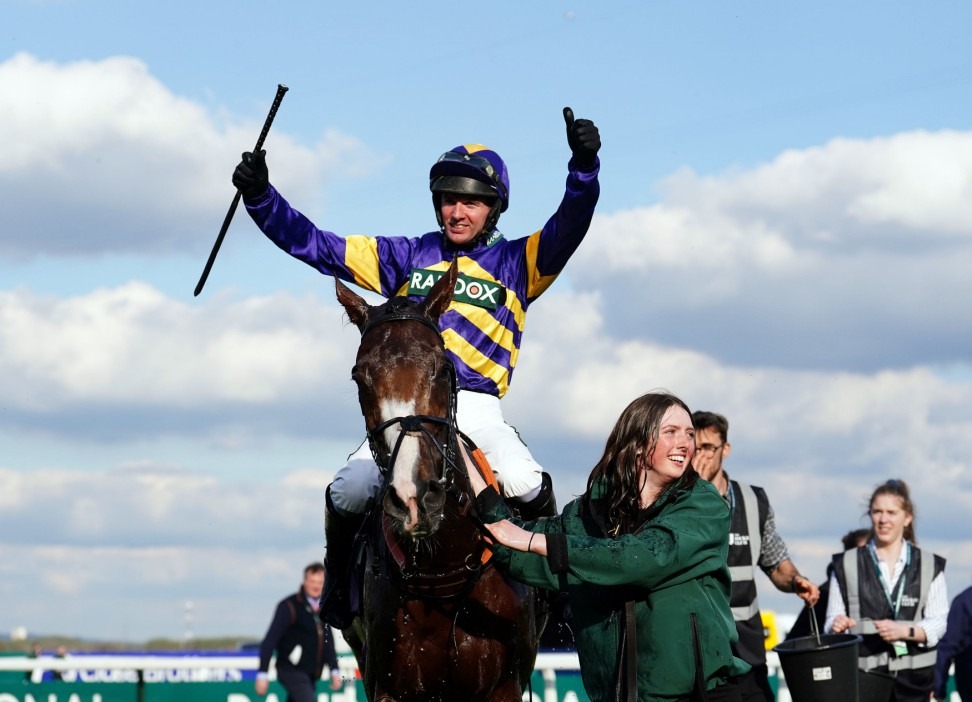Meet the ITV Presenters
As the Grand National 2024 approaches, fans are eager to know who will be presenting the iconic race on ITV. Leading the pack is Ed Chamberlin, with a star-studded lineup joining him. The punditry team will include Sir Anthony McCoy, Ruby Walsh, and Mick Fitzgerald, providing expert analysis throughout the three-day event. Other familiar faces like Rishi Persad, Alice Plunkett, Matt Chapman, and Adele Mulrennan will also be part of the coverage, with Brian Gleeson and Luke Harvey adding their expertise from the betting ring.
What to Expect at Aintree
The Aintree schedule is packed with thrilling races leading up to the Grand National. From the Manifesto Novices' Steeple Chase to the Randox Grand National Steeple Chase, each day offers a unique set of competitions for horse racing enthusiasts. Notable events include the William Hill Aintree Hurdle, the TrustATrader Top Novices' Hurdle, and the JRL Group Liverpool Hurdle, among others.
Key Dates and Times
Thursday, 11 April – Opening Day
- 13:45 – Manifesto Novices' Steeple Chase (Grade 1) 2m 4f
- 14:20 – Boodles Anniversary 4-y-o Juvenile Hurdle (Grade 1) 2m 1f
- … (Full schedule available in the original article)
Friday, 12 April – Ladies Day
- 13:45 – Mildmay Novices' Steeple Chase (Grade 1) 3m 1f
- 14:20 – William Hill Handicap Hurdle (Grade 3) 2m 4f
- … (Full schedule available in the original article)
Saturday, 13 April – Grand National Day
- 13:20 – Bridle Road Handicap Hurdle (Grade 3) 3m ½f
- 13:55 – Turner Mersey Novices' Hurdle (Grade 1) 2m 4f
- … (Full schedule available in the original article)
With the excitement building up for the Grand National 2024, viewers can look forward to an unforgettable experience filled with top-notch racing action and expert commentary from ITV's lineup of presenters.
Frequently Asked Questions
Does a racehorse need a certain type of shoe?
Racing plates are typically lighter and thinner compared to regular horseshoes. These plates are designed to provide the required traction while also minimizing the weight. A professional farrier with experience in working on racehorses carefully selects and fits these shoes according to the hoof structure of each horse and the type of racing surface that they will run on.
How often should racehorses train?
Racehorses are trained according to their individual needs, fitness levels, and race schedule. Typically, they would have a daily routine consisting of exercise such as walking, trotting, and cantering, with more exertive work such as galloping or breezing several times a week to build stamina and speed. Rest days are equally important to allow the horse to recover and prevent overtraining.
What is a trainer’s role in training a racing horse?
The jockeys are essential in the training and development of racehorses. They ride horses and provide feedback about the horse’s performance. But they also teach the horse racing tactics like pacing, position, and how to respond to commands. A good jockey is able to recognize the horse’s strengths, weaknesses and how they can be improved.
Are there different race training methods for different horse breeds?
The race training methods used for different breeds of horses can vary because the breed characteristics as well as racing distances are different. For instance, Thoroughbreds, which are commonly associated with long-distance flat racing, undergo different training compared to Quarter Horses, which specialize in sprinting short distances. Each breed is unique and requires a different approach to match their physical characteristics and behaviors.
What kind of diet is best for a racing horse?
The diet of a racehorse must be balanced and high-quality to meet the demands for energy during training and racing. It generally consists of a combination of high-grade hay, grains such as oats or barley, and commercially prepared feed designed for racehorses. Additionally, the diet should be supplemented with essential vitamins and minerals to support overall health and peak performance.
How important is a horse’s pedigree when it comes to winning races?
While pedigree can be an indicator of potential, it is not the sole determinant of a racehorse’s success. The lineage of a horse may indicate an inherited ability for speed or endurance. However, training, health and temperament can also be influential factors. Training can enhance a horse’s natural abilities, and allow it to perform better than horses with more impressive pedigrees.
Statistics
- The majority of racehorses in training are subject to an exercise regimen that includes being ridden six days a week.
- The average cost to train a thoroughbred racehorse for one year can exceed $50,000, accounting for expenses related to training, boarding, and veterinary care.
- Approximately 70% of a racehorse’s diet consists of forage, with the remainder made up of grains and supplements to meet their high-calorie needs.
- Gastrointestinal issues affect up to 90% of racehorses during their training, emphasizing the need for careful dietary management.
- Research has found that a racehorse’s stride length can increase by up to 7% following specific strength and conditioning programs.
- Studies suggest that proper early training can reduce the risk of musculoskeletal injuries in racehorses by up to 50%.
External Links
horseracing.com
thoroughbredracing.com
keeneland.com
paulickreport.com
bloodhorse.com
britishhorseracing.com
How To
How To Educate A Racehorse On Racing Strategies
Educating a racehorse on racing strategies requires a combination of trackwork and guidance from an experienced jockey. Practice gate starters, pacing in races, positioning, and responding to changes in pace. Use role-playing to introduce your horse to different racing scenarios and teach him to adapt to a competitive setting. A well-instructed animal can make strategic moves, and adjust their pace as instructed by the rider. This greatly influences the outcome of a competition.

